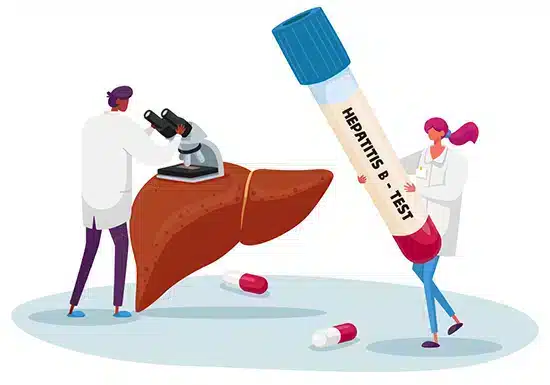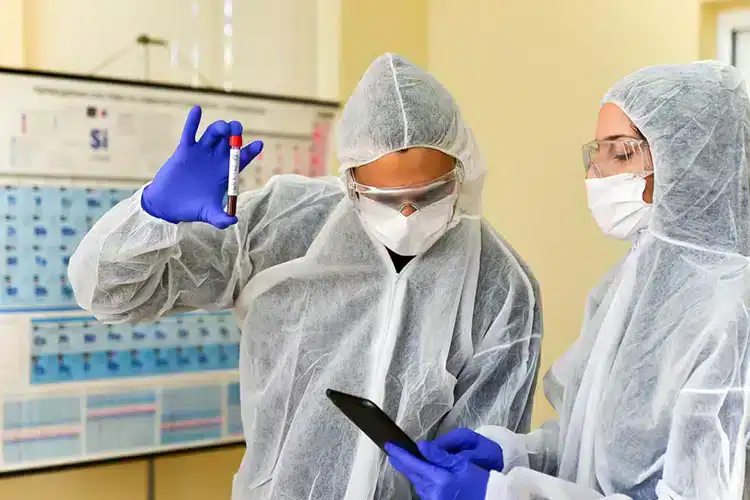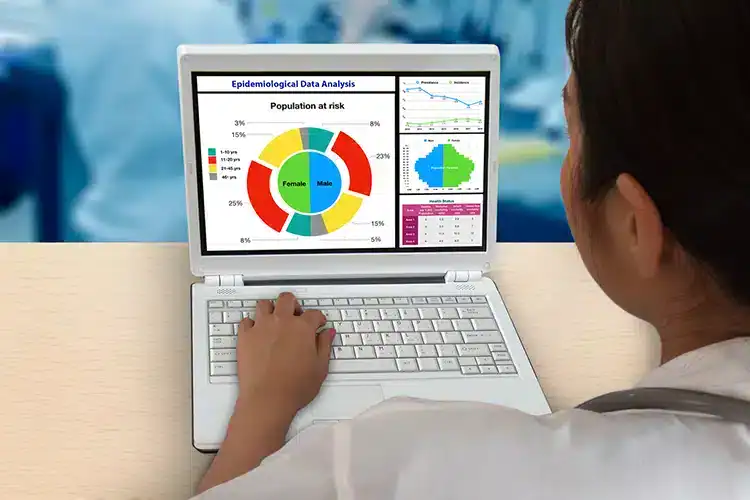5 Best Epidemiology Programs in the US: Shaping Public Health Futures
Published: July 4, 2024

Epidemiology safeguards public health by studying disease patterns, causes, and effects. Top-tier epidemiology programs are essential in shaping future public health leaders, providing them with the skills and knowledge to address global health challenges. Factors like curriculum quality, faculty expertise, and research opportunities are vital when choosing the best programs.
These programs significantly contribute to advancing epidemiological research and practice in the United States, preparing graduates to lead disease prevention and health promotion efforts. Let’s take a closer look at some of the best epidemiology programs in the U.S.

Why is Epidemiology a Good Career Choice?
Epidemiology is a versatile field that applies across various sectors, such as healthcare, environmental science, and public policy. Epidemiologists play a crucial role in safeguarding public health by investigating disease outbreaks, designing prevention strategies, and shaping health policies.
This rewarding career offers the opportunity to make meaningful contributions to disease prevention and control, thereby improving community health. The profession’s impact on public health policies and the ability to address diverse health challenges make it an excellent career choice for those passionate about improving health outcomes.
Best Jobs From an Epidemiology Degree
Earning an epidemiology degree opens doors to diverse and impactful career paths. Here are some of the best jobs for epidemiology graduates:
Epidemiologist
Epidemiologists investigate disease outbreaks, design prevention strategies, and research to advance public health knowledge. Their work identifies risk factors, controls diseases, and informs public health policies.
Public Health Analyst
Public health analysts assess community health needs, evaluate interventions, and inform evidence-based public health policies and programs. They play a key role in developing strategies to improve health outcomes.
Environmental Health Specialist
Environmental health specialists identify and address environmental factors that impact public health, such as air and water quality. They develop strategies for mitigating risks and promoting healthier environments.
Health Educator
Health educators develop and implement educational programs to promote healthy behaviors, prevent diseases, and empower individuals and communities to make informed health decisions. Their work is vital in raising awareness and fostering public health.
Research Scientist
Research scientists conduct epidemiological studies to investigate disease patterns, identify risk factors, and develop interventions to improve public health outcomes. Their research is foundational in advancing our understanding of health and disease.

What are the Top 5 Epidemiology Programs in the USA?
Choosing the best epidemiology program can significantly impact your career. Here are five top programs in the United States:
University of the People’s Health Science Studies
University of the People offers an accessible Bachelor of Science in Health Science online degree, which includes specialized certificates in Epidemiology. The program covers essential areas such as biology, psychology, anatomy, and physiology, preparing students for various healthcare roles and advanced studies. Its tuition-free model, flexibility, and comprehensive curriculum make it an excellent choice for those looking to enter the field of epidemiology.
Johns Hopkins University Bloomberg School of Public Health
Johns Hopkins is renowned for its comprehensive epidemiology program, which features a rigorous curriculum, esteemed faculty, and cutting-edge research facilities. The program prepares students for leadership roles in public health through extensive research opportunities and practical training.
Harvard T.H. Chan School of Public Health
Harvard’s epidemiology program is known for its interdisciplinary approach and emphasis on evidence-based practice. The program offers global health initiatives and robust research opportunities, making it a top choice for aspiring epidemiologists.
University of California, Berkeley School of Public Health
UC Berkeley’s epidemiology program stands out for its focus on environmental health, social determinants of health, and innovative research methodologies. The program encourages a holistic approach to public health and provides ample research opportunities.
University of Michigan School of Public Health
The University of Michigan offers a strong epidemiology program with a collaborative research environment and a diverse student body. The program provides opportunities for fieldwork and internships, preparing students for various public health careers.
The Requirements for an Epidemiology Degree
Pursuing an epidemiology degree involves meeting specific academic and application requirements. Here’s what prospective students need to know:
Educational Background
A strong foundation in relevant fields such as public health, biology, or statistics is essential. Undergraduate majors in these areas are beneficial for success in graduate-level epidemiology coursework.
Standardized Tests
Many programs require standardized tests like the GRE (Graduate Record Examination). Achieving competitive scores can strengthen your application and demonstrate your readiness for rigorous academic work.
Letters of Recommendation
Strong letters of recommendation from academic or professional references are crucial. These letters should attest to your academic abilities, research experience, and potential for success in epidemiology studies.
Statement of Purpose/Personal Statement
Crafting a compelling statement of purpose is vital. Highlight your passion for epidemiology, career goals, relevant experience, and reasons for pursuing graduate studies in the field.
Transcripts
Submitting official transcripts from all previous undergraduate and graduate coursework is necessary. These transcripts should demonstrate academic excellence and proficiency in relevant subjects.
English Proficiency (for international students)
International students must demonstrate English proficiency through standardized tests such as the TOEFL or IELTS. Meeting these requirements ensures you can succeed in an English-language program.
What is the Duration of Epidemiology Programs in the USA?
Epidemiology programs in the USA vary in length depending on the degree pursued. Master’s programs typically take about two years to complete, and they encompass coursework in biostatistics, research methods, and specialized epidemiology topics, along with practical experience.
Doctoral programs, on the other hand, generally span four to five years. These programs are more intensive, requiring advanced coursework, comprehensive exams, and the completion of original research culminating in a dissertation. The duration of doctoral studies can vary based on the research component and degree specialization.

Important Considerations Before Starting Epidemiology Studies
Before starting your epidemiology studies, it’s important to consider a few key points to ensure your success.
- Educational Background: Make sure you have the necessary background in subjects like biology, statistics, or public health. These foundational subjects will help you understand and excel in epidemiology coursework.
- Career Goals: Think about your career goals and how a degree in epidemiology can help you achieve them. Consider the various career paths available in public health, research, and policy-making.
- Program Accreditation: Choose an accredited program to ensure high academic standards and better job prospects. Accreditation is a mark of quality that employers and other institutions recognize.
- Research Opportunities: Look for programs that offer strong research opportunities and mentorship. Participating in research projects can provide valuable experience and enhance your learning.
- Networking and Collaboration: Find programs that encourage networking with faculty, peers, and professionals in the field. Building a strong professional network can open doors to career opportunities and collaborations.
- Financial Considerations: Consider the costs of the program, including tuition, financial aid, scholarships, and potential internships. Plan your finances to manage expenses and minimize student debt.
- Work-Life Balance: Plan how you will balance your studies with personal commitments to avoid burnout. Develop time management strategies and self-care practices to maintain a healthy work-life balance.
Are You Ready to Start Your Epidemiology Studies Journey?
Starting your epidemiology education involves several key steps and considerations. Research various program options to find the best fit for your interests and career goals. Assess your readiness for the academic rigor of the field and ensure you meet the necessary prerequisites and qualifications.
Institutions like University of the People offer accessible and flexible online programs that can help you achieve your goals. By thoroughly preparing and making informed decisions, you can embark on a rewarding journey in epidemiology, contributing to the advancement of public health and making a meaningful impact on communities.
FAQs
What are the admission requirements for epidemiology programs?
Admission requirements typically include a bachelor’s degree in a related field, GRE scores, letters of recommendation, a statement of purpose, and transcripts from previous studies. Some programs also require relevant work or research experience.
Can I pursue epidemiology with a non-healthcare background?
Many programs accept students from various backgrounds as long as they have completed prerequisite coursework in subjects like biology, statistics, or public health.
Are online epidemiology programs as reputable as traditional ones?
Yes, many online programs, such as those offered by University of the People, are accredited and provide the same quality of education as traditional programs. Accreditation ensures that the program meets high academic standards.
What sets each of these epidemiology programs apart from others?
Top programs are distinguished by their faculty expertise, research opportunities, curriculum quality, and global health initiatives. Each program has unique strengths, such as Johns Hopkins’ comprehensive research facilities and Harvard’s interdisciplinary approach.
What types of epidemiological research are conducted within these programs?
Programs conduct research on public health issues, including disease outbreaks, environmental health, chronic diseases, and health policy. Research topics may include infectious diseases, epidemiology methods, health disparities, and global health challenges.
What are the best epidemiology programs in the USA?
Top programs include University of the People’s Health Science Studies, Johns Hopkins University, Harvard T.H. Chan School of Public Health, UC Berkeley, and the University of Michigan. These programs are known for their rigorous curriculum, research opportunities, and contributions to public health.

